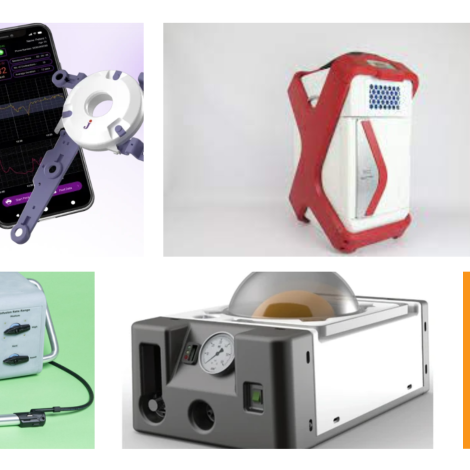Illuminate Dermoscope wound screener, Tampostat low-cost post-partum hemorrhage treatment, Saans neonatal breathing disorder treatment, and more than 20 other technologies have been assessed for inclusion in Engineering for Change’s Solutions Library. The work stems from a collaboration with the Biomedical Engineering department at Makerere University in Kampala Uganda.
Learn more about the Solutions Library
The Solutions Library is a living database of technologies that meet basic needs in the world’s underserved communities. The library contains thousands of products and services, each detailed in a standardized format that includes interviews, research findings and other evidence for their efficacy. Standardization of each entry allows for easy, side-by-side comparisons between similar products, supporting practitioners as they decide among their options for technologies to meet their goals.
We got to contribute to a notable cause that could come a long way in improving the development status of resource-constrained communities like mine. – Racheal Nalwoga, biodmedical engineer, Makerere University
Six Makerere students joined E4C’s Fellowship Program in 2022 to conduct a deep update of the Health sector of our Solutions Library. The fellows added 25 new technologies to the Solutions Library, revised 12 existing entries and restructured the Health sector, expanding six technology categories. The result is a more relevant, better organized selection of health technologies.
Now 15 of the 25 technologies our fellows from Makerere Biomedical Engineering assessed are published or pending publication.
They include Reli, illuminate Dermoscope, Tampostat, Saans, DMPA-SC, BrailleMe, 3rd Stone Cold Storage, Soloshot, ePartogram, Keyar, OralScan, HeatMarker VVM, miniPIERS, Saarthi, and breastIT.
Browse the complete Solutions Library by technology category, region or keyword search
This pilot collaboration proved the idea has merit, was successful and could be carried out again to even greater success, says Dr. Robert Ssekitoleko, head of Biomedical Engineering at Makerere University.
Surveys suggest the fellows were inspired by the work.
“I loved the fact that we got to contribute to such a notable cause that could come a long way in improving the development status of resource-constrained communities like mine (Uganda),” Racheal Nalwoga, a biomedical engineer at Makerere and former E4C Fellow, told E4C.
Some technologies assessed are still prototypes, such as Kriya, a personal care product monitors pregnancy and alerts mothers to anomalies it detects.
“We hope that when funders find such devices they could assist in their promotion and advancement,” Ms. Nalwoga says.
Once published, the product entries may prompt innovators to develop similar or improved technologies to solve healthcare challenges in different settings, Ms. Nalwoga says.
